Earlier this week, Immigration Minister Andrew Giles posted the below on Facebook claiming that Labor’s record immigration policy is not driving Australia’s rental crisis:
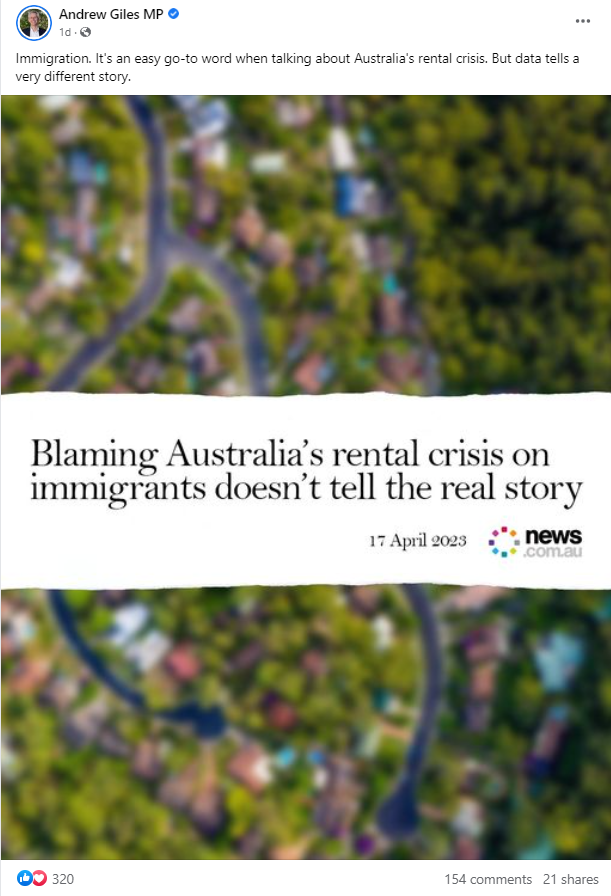
“Immigration. It’s an easy go-to word when talking about Australia’s rental crisis. But data tells a very different story”, Giles said, before linking an article by Tarric Brooker.
Brooker’s article claims that Australia’s rental crisis began when the number of people per homes fell sharply at the beginning of the pandemic, but has since worsened after the federal government threw open the immigration floodgates.
The below quote from Brooker’s article, which Giles clearly didn’t bother to read, tells the tale.
“Since the border reopened in early 2022 the normalisation of temporary visa holder numbers has exacerbated the rental crisis significantly”.
“It ultimately comes down to numbers, there are 444,000 more people in need of homes in this category than at the start of 2022. This has left many Australians asking an important and profound question, where are all Australia’s renters both citizens and visa holders going to live?”
Separately, Tarric Brooker tweeted the following highlighting the adverse impact that Labor’s extreme immigration program is having on the rental market:
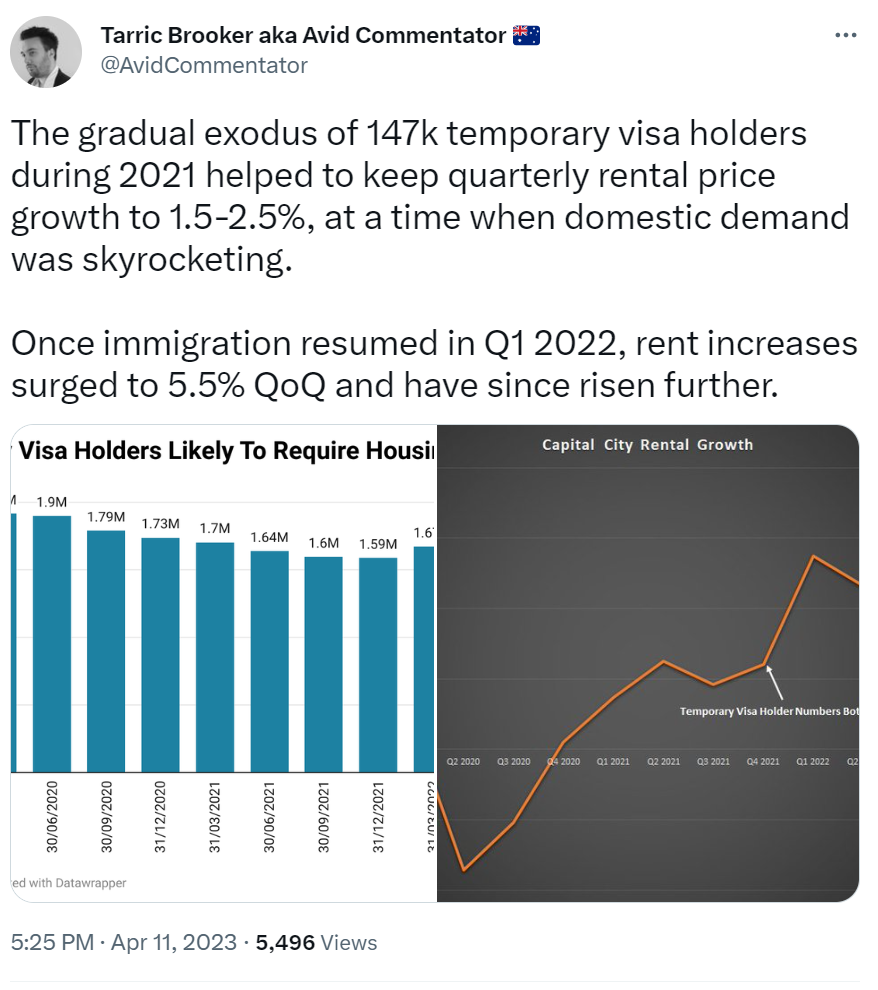
Brooker provides the below chart showing that temporary migrants likely to require housing has boomed to record highs:
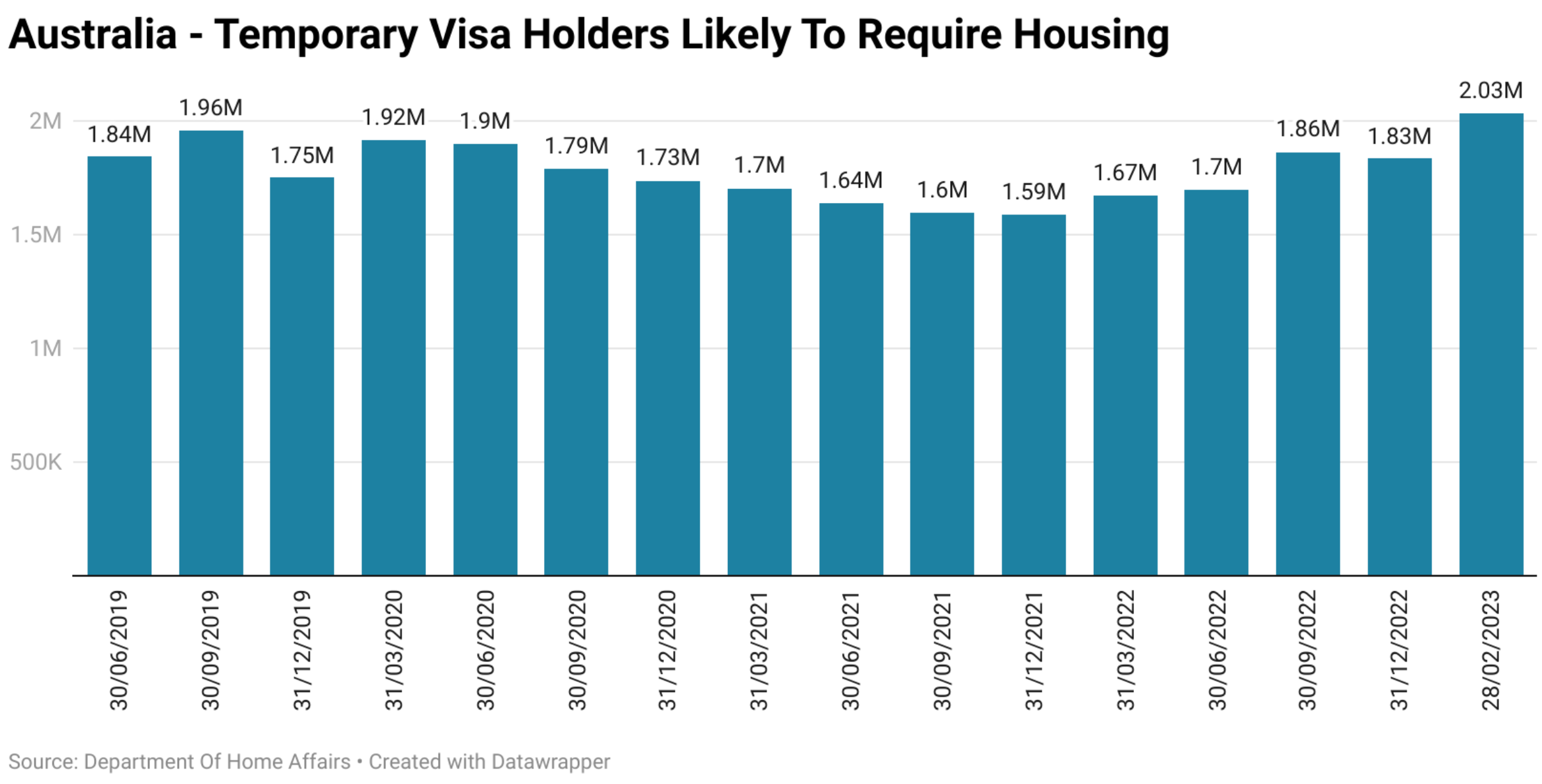
And this boom in migrants is driving up rents:
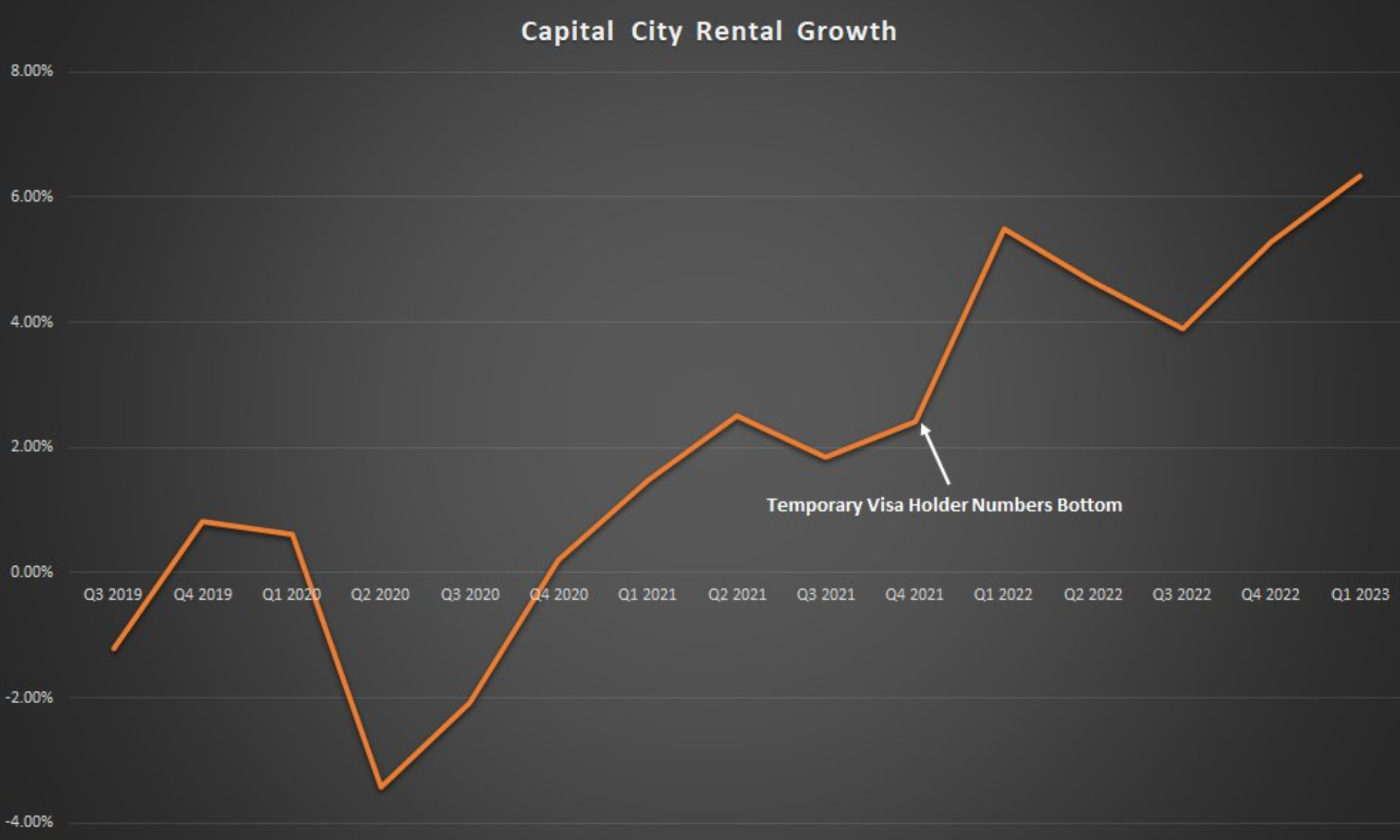
That’s hardly in line with Giles’ argument, is it?
Let’s get real here. Australia’s population expanded by a record high 482,000 in 2022 on the back of record net overseas migration:

Monthly visa data to March also shows that net temporary student arrivals have soared to record highs, which suggests 2023 will break more immigration records:
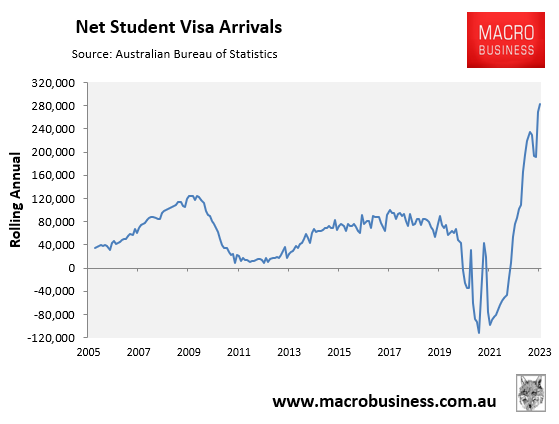
These 482,000 extra people in 2022 (mostly through immigration) and the larger intake in 2023 need to live somewhere.
The extreme growth in the population at a time when housing supply is constrained necessarily means the rental market will tighten further, driving rents higher and pushing thousands of Australians into homelessness.
The National Housing Finance & Investment Corporation’s (NHFIC) latest State of the Nation’s Housing report, which was based on lower immigration projections than Australia is currently experiencing, explicitly forecasts that demand will exceed supply by 124,100 dwellings over the five years to 2028.
NHFIC’s report notes that “the reopening of international borders is expected to lead to a rapid recovery in net overseas migration and new household formation”.
“The short to medium term is likely to be dominated by a cyclical downturn in new supply, at a time of strong population growth”.
“This is likely to see household formation outpace new supply for several years, with adverse flow on effects for affordability”.
NHFIC also warns of dire impacts on the rental market.
“Returning migration at a time of low vacancy rates is likely to result in upward pressure on rents”.
“Rents are picking up strongly in the cities that receive the bulk of overseas workers and international students, such as Sydney and Melbourne”, NHFIC notes.
Gaslighting and lying about the rental crisis are no way to conduct government policy.
Andrew Giles should hang his head in shame.
Australia faces permanent housing shortages under the Albanese Government’s extreme immigration policy.

